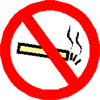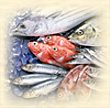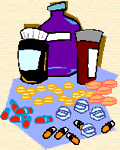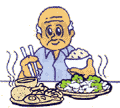|
All stroke experts agree that strokes are preventable.
Controlling blood pressure is considered the key to preventing strokes.
To keep your blood pressure healthy get it measured regularly. How regularly depends on a person's age, blood pressure level, and what medications they are taking. Most healthy people are advised to have their blood pressure checked at least once a year.
Other measures that help decrease the risk of stroke include: |
 |
Get at least half an hour's moderate exercise (walk up stairs, play sports, walk or run on the spot for half an hour, get off the bus a few stops earlier and walk). |
| |
 |
| |
|
 |
Stop smoking |
| |
 |
| |
|
 |
Reduce the salt levels in your diet. |
| |
|
 |
Cut back on animal fats, full fat milk, sugary foods, and high cholesterol foods such as shellfish and liver. |
| |
|
 |
Have your blood sugars, blood fats and blood cholesterol levels measured at least once a year if any of these levels are raised. If you are diabetic, try to keep your blood sugars as well controlled as possible. |
| |

Maintain optimal weight and keep blood sugar in control if diabetic |
| |
|
 |
Increase the servings of green vegetables and wholegrain foods (pasta, wholegrain breads) in your diet. |
| |
 |
| |
|
 |
 Eat more oily fish (salmon, mackerel, tuna). Eat more oily fish (salmon, mackerel, tuna). |
| |
|
 |
Achieve and maintain a healthy weight for your age and gender. |
Note: If you have suffered any of the symptoms of a stroke and recovered you may have had a transient ischemic attack (TIA). This is a significant early warning sign of a possible major stroke. See your medical adviser immediately, or go to the hospital at once if they cannot be reached, and carefully follow the treatment plan offered.
|
| |
|
|
 |
Individuals who have hypertension (high blood pressure), diabetes or high blood cholesterol or blood fats such as lipids and trigylcerides should take their prescribed medications regularly. These conditions are all risk factors for developing a stroke and should be tightly controlled to maintain optimal health. |
| |
 |
| |
|
 |
If a person suddenly develops an aura feeling, an extreme sudden onset headache, dizziness, numb limbs, facial distortion such as a crooked mouth, difficulty speaking, he or she should seek medical advice immediately since these all can be symptoms of stroke. The earlier a stroke can be treated, the better outcome a person will have. |
| |
Click here to see the stroke symptoms |
| |
|
 |
Eat and drink moderately. Living a balanced life by stabilizing emotions, avoiding exhaustion and fatigue, and having regular bowel movements. |
| |

Eat a proper diet |
| |
|
 |
Appropriate exercises like tai chi can help stimulate blood flow and keep the muscles strong. Exercising regularly can build up one's health and prevent stroke. |
| |
 |
| |
|
 |
For people who experience a sudden onset stroke, especially for those who have a stroke because of bleeding (hemorrhaging) into the brain, it is best not to move these people and to call for emergency services to treat them on the spot. Moving them may exacerbate their condition. |
| |

Seek appropriate emergency treatment |
|
| |
|